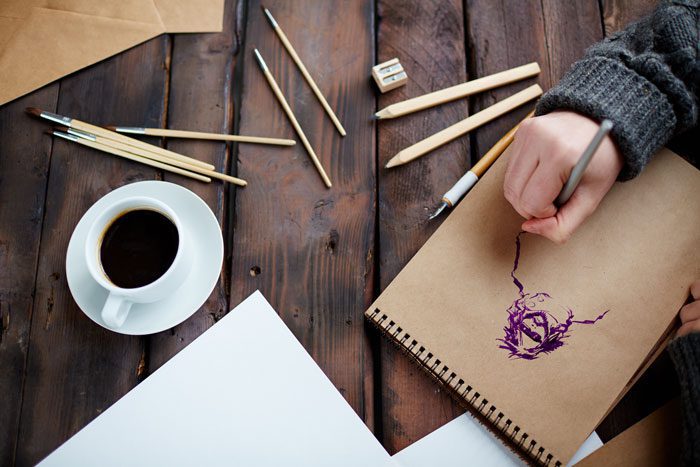 Creativity can be pushed to the background when someone develops a substance abuse problem.
Creativity can be pushed to the background when someone develops a substance abuse problem.
Their drug of choice is at the forefront of many decisions, so taking time out for creative expression doesn’t seem like much of a priority.
As part of recovery, rediscovering this part of one’s self is important. A number of people who are seeking help for drug and alcohol abuse have forgotten what it’s like to feel pleasure from anything other than chemicals. Activities for self-expression can help to open those doors, giving people in recovery an opportunity to rebuild their emotional health as well as providing an outlet for some of the more intense emotions that will come up during the recovery process.
1. Drawing or Painting
Contrary to what you may be thinking, you don’t have to have any artistic training to start drawing or painting. Each person goes through her own journey in recovery, and she can create her own artwork to work through emotions when it’s difficult to describe them in words.
This is a common issue for people living with addiction; they often find it challenging to find the words they need to describe their feelings. Drawing or painting helps to provide the staff they’re working with more information.
2. Journaling
The beautiful thing about journaling is that it doesn’t have to be in any particular form. Each person’s journal is unique, and the journal can include any type of content that is meaningful for the person writing it.
A journal can include thoughts and observations, poems, snippets of songs the writer likes (with comments about why they might be meaningful on a particular day), memories about the past (positive and not as positive) and more. One type of exercise that some people find helpful is to take a past event that they would like to change and write a new ending for it. While we know we can’t really turn back time, this exercise allows the person writing the journal to have the chance to “do over” some things that he now regrets.
Only the client and his therapist ever see what is written in a journal. This type of entry may help a client identify issues with his family and friends that need to be addressed as part of his emotional healing.
3. Spending Time Outdoors
There is more than one way that spending time outside can foster creativity. A simple way would be to spend a few minutes sitting outside quietly in the same space at different times of day, being mindful of the sights, sounds, and smells and how they vary. What are differences between early morning, mid-afternoon, and evening?
4. Planting a Garden
Gardening is a wonderful way to be creative, since there is such a variety of plants available. Even people who say they don’t have a “green thumb” can succeed in growing some type of plant.
When space is at a premium, consider container gardening for flowers, herbs, or even a few vegetables. The sight of plants is a welcome addition to any environment, and caring for them is a way to boost self-esteem.
5. Learning to Cook
Cooking is a basic skill that everyone should learn. It’s also a highly creative one that has plenty of room for experimentation. If you have ever tasted homemade spaghetti sauce, you know that there are many variations of this recipe. Restaurants also put their own signature on their sauces.
For a person in recovery, learning to cook meals that are nutritious and delicious can also help with creativity. Once someone feels comfortable with the basics of a recipe, he can start to experiment by adding or substituting spices or other ingredients to put a personalized stamp on the dish. Even the occasional mistake is part of the learning process, and a reminder that creativity is as much about the process as the destination.
How Great Oaks Recovery Can Help
Recovery from drug and alcohol addiction is a journey, and not a destination that someone can say that he has arrived at after a certain time. Great Oaks Recovery offers caring, professional treatment on an inpatient basis, working with clients to develop the creativity, self-expression, and communication skills necessary for lasting sobriety.


